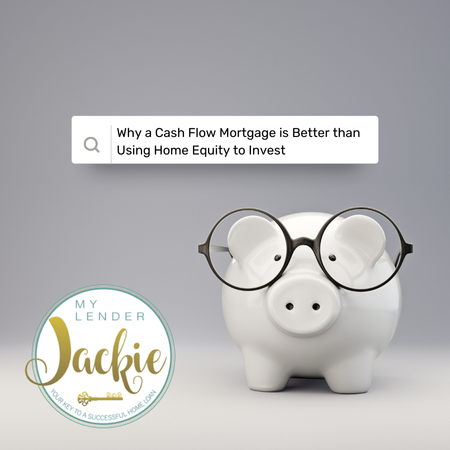Smart investment-minded individuals are always looking for ways to invest in a new property, and surprisingly a cash flow mortgage might be the best option for you! If you’re looking for creative financing solutions to buy a rental property in Southern California, you may be wondering if a home equity loan is the right decision. While there are certainly benefits to using a home equity loan and leveraging your current real estate property to buy another, we have a non-QM option that might be an even better fit.
Let’s talk about cash flow mortgages and why applying for a cash flow mortgage might be the better fit for you than leveraging your home equity.
 What is a cash flow mortgage?
What is a cash flow mortgage?
A cash flow investment property loan is designed specifically for purchasing rental properties. These loans consider the potential rental income of the property when determining the loan amount and terms. We focus on the property’s ability to generate enough cash flow to cover the mortgage payments and other expenses, ensuring that the investment is financially viable, rather than focusing on your personal income.
Because of this, many borrowers are surprised to discover the options available to them. Even if you don’t have the income you expected you would need to buy a new property, if it has verifiable potential for significant rental income you can qualify based on that, instead.
Why is a cash flow mortgage the better option for some people?
One of the most significant advantages of a cash flow investment property loan is that it preserves the equity in your existing property. Using equity as collateral means putting your primary residence or another property at risk. If the rental property doesn’t generate the expected income or the market conditions change, you could face financial difficulties that threaten your home. By opting for a cash flow investment property loan, your primary residence remains secure.
There are also tax benefits that usually outweigh home equity loan benefits. Interest payments on cash flow investment property loans can often be tax-deductible as business expenses. This tax advantage can significantly reduce the overall cost of the loan, enhancing your investment returns. While interest on home equity loans can also be tax-deductible in some cases, the benefits are typically more straightforward and advantageous with loans specifically designed for investment properties. Talk with your tax professional to confirm the details in your scenario.
Access to Larger Loans
We are often able to provide access to larger loan amounts through a cash flow mortgage compared to home equity loans. Since the loan is based on the rental income potential and the value of the investment property, you can leverage the property’s future income to secure more substantial financing. This access can enable you to invest in higher-value properties or multiple properties, which only accelerates your real estate portfolio growth.
Is a home equity loan for an investment property risky?
While technically any investment poses some risk, a home equity loan is often the riskier option between the two. Using equity from your primary residence to finance a rental property introduces significant risk. If the rental property doesn’t perform as expected or if you encounter financial difficulties, you could jeopardize your home. This risk is particularly concerning for those relying on their home’s equity for financial stability.
Taking out an equity loan also increases your overall debt burden, which can impact your personal finances and credit score. Higher debt levels can affect your ability to obtain additional financing for other purposes and may limit your financial flexibility. For many of our clients, its much better to keep business investments and personal debt separate.
Want to learn more about investing in real estate? We’ve helped hundreds of clients for over 20 years, and we can help you tool. Contact us any time to learn more about the options available to you.

